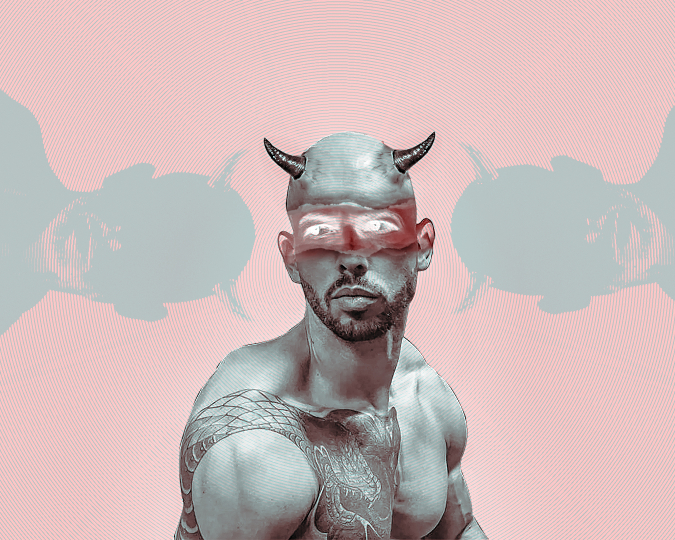I've been loving teaching again after a two year break. I taught senior English for fifteen years before quitting because I was on the verge of another nervous breakdown. It's taken me a while to get my mojo back, and it's surprising to find it in the junior years as I teach Year 7 and 8 English. I haven't taught those lower levels for a very long time, and had forgotten how fun it can be, especially at Year 7.
Besides, I've got to teach some of my most loved short stories, like Ursula Le Guin's The Wife's Story, Bradbury's The Veldt and All in A Summer's Day. It's been fun teaching creative writing to such enthusiastic kids. I've felt reinvigorated in the classroom again, enjoying the performance of it, and interacting with students, who can be delightful fun (when they aren't throwing paper planes or drawing penises on people's books).
Last week we had two days of professional development, and though we might moan about better ways to spend our time (especially if we're put into a PD we hate) they can be quite thought provoking and inspiring. I'd been put into a PD on an app I was never going to use, so I rebelliously snuck into the session I did want to go to - about raising boys to be good men. It was run by a colleague who had been to a workshop run by The Man Cave, a group that works 'with young men at a preventative level, empowering them to become great men for themselves, their relationships and their communities.' Now this is a pretty important project in a country where domestic violence is a massive issue, male suicide is very high, and young men are struggling in the school environment post lockdowns, social media influences affect their beliefs, and idiots misogynists men like Andrew Tate influence how they see themselves and the world.
As a female teacher, I was interested in how to positively engage with boys as I'm guilty of supporting woman, because, well, I am one, and feminism has been a massive part of my life as I defend woman's rights and make sure the girls in the classroom are heard. But how do I recognise the problems boys are going through, support their self worth, and make them feel supported and heard as well? How do I deal with comments such as 'Andrew Tate actually does some really good stuff' when I know he's a con man whose influence on young men threatens to send us back to the 1950's? What actually is the current state of masculinity? Why does Tate resonate with them?
One take away was that algorithms have a lot to answer for. Even if young men didn't feel comfortable with what Tate had to say about woman, if they'd clicked on his video at any point, or any similiar videos, or liked things because they were funny or inspiring but were still from men like this, they were just going to be constantly fed this kind of thing. That's dark. Boys have to be pretty self aware to switch off from that kind of thing and know when the line has been crossed. The BBC content report found that:
algorithms ... "deliberately push 13-year-old boys towards Andrew Tate - not for any content reason, but simply on the basis that 13-year-old boys are like each other and one of them has already been on that site".
How are teachers meant to go up against the algorithm? We can't.
All we can do is to challenge, really. Asking questions such as 'why do you think that' and keep nutting down into their rationale is important. They do need be challenged, and they do need an adult to do that, and they do need to be reminded about what is actually illegal and where they have crossed the line. Teaching them to be critical about what they watch is an educator's job. It's no good to utterly shut them down, yell at them, punish them, tell them they're wrong - but they definitely need to be taught to think critically.
Another one of our jobs is to show vulnerability - because we want to model it for them. The catchphrase is that it's 'not weak to speak'. Providing a safe space for them to express themselves and to understand that it's okay to do that is incredibly important.
One of the things we're noticing in Australian classrooms in increased banter post COVID lockdowns - as they've missed some important years of socialisation through lockdowns, the boys have come back without the social skills to be good to each other. There's a lot of teasing, ribbing, ridicule and poking - more than usual. As educators, we need to get them to understand why they do that - usually because of the dopamine hit they're used to on Tik Tok - and how it doesn't serve them.
The most important thing, it seemed, was that they need good role models - and male ones. One of the hardest facts to get our heads around that boys often won't listen to woman unless a male says she has something important to say, and they should listen to them. That utterly sucks for female teachers. There was no real answer to that.
Whilst I'm taking another break from teaching, I'd really like to know more about how I can engage with boys and influence the culture through positive relationships. It's a whole new ball game - there was no algorithms when I began this career. It also made a lot of us really concerned with how teachers are leaving the profession because of this kind of thing, and how our government and indeed society is going to deal with it.
With Love,

Are you on HIVE yet? Earn for writing! Referral link for FREE account here


I think that one of the biggest difficulties that kids are facing these days is that they think that social media (and the internet in general) is an adequate (accurate) reflection of real life.
My two cent advice is to teach them to ask better questions about things like... why they think what they do, why they believe what they do and what it would take to change those things... in such a way that they think it was all their own idea.
Exactly, that's what I said - challenge their thinking! Why, why, why.
I like saying:
Teach 'em to think for themselves!
I think that it is a little unfortunate that as much as the kids of this generation are fortunate to have technology on their side to aid their learning, it is also sad that they are sometimes exposed to the wrong idea uncontrollably.
I have only heard about Andrew Tate but I have never listened to him or consumed any of "his content." I despise chauvinism actually. I was brought up by a woman alone, so the prejudice doesn't tally for me. But how does one teach that to boys of this age? I really do not know the answer you're seeking to that question.
Speaking of "the algorithm," I have become really careful with what I "interact with." The moment you like something that you are not exactly in tune with, but was interesting at the time, the algorithm plagues your feed with even more. I just consume the necessary and walk away in such cases, in hopes to not have them infest my space in the future.
Rather than listen to people like Tate, there are insightful people like Jay Shetty that talk about profound ways to become better as a person and in interacting with other people regardless of gender. He's taught me many things in the last three months.
Haven't heard of Jay Shetty, but I'll look him up if you say he's worth paying attention to. You have to be so careful of the algo, and I do think parents and teachers need to educate kids in that regard.
Being brought up by woman would have changed your perspective I'm sure. A bad male role model is worst than not having a Dad around for sure. I was lucky with my parents - Mum is very feminist and Dad's just a kind person.
It is sad that social media, which seems to be an innovative technology, can also be a detriment for young people to learn. It is quite evident that the media promotes content that is quite harmful to someone's introspective thinking and sadly people actually enjoy this harmful content.
The really good and helpful content fallout, which makes it get low visibility in the long run.
The media has to some extent(if not all) changed the good perspective of people to actually not recognise good content, they see good contents as old school and believe that's how things worked in the past. It's quite sad, truly.
I hope you find the answer as well to fight this kind of ideology, because it is very important to safeguard the young ones from harmful contents that will deter them from making good decisions in the future.
Great post as always River! It's always nice to engage in your posts.
Zeegirl 🌻.
Hello! I support your position. Indeed, promoting positive and constructive content is crucial, especially in the digital age where information is easily accessible. Schoolchildren and students have to observe a lot of new information every day. It is better when it is useful. In educational institutions, they perform a large number of tasks. They perform many written tasks, and if they are not good at writing works, they can ask for help. Thank you! Good Bye.
The article is very informative and useful for anyone working with young people. The author shares his experience of teaching after a long break and how he found joy and creativity in working with younger students. He also discusses professional development and attending PD to improve his teaching skills. The author gives his views on the influence of social media and Andrew Tate on young people and is concerned about how these factors may affect teachers. He also stresses the importance of good role models for boys and the need to understand their behavior. Overall, this text is a valuable resource for teachers and parents who want to know more about how to support young people in their academic and personal lives.
Please do not use AI to comment on my posts.
@hivewatchers
There is reasonable evidence that this article is machine-generated. Posting such content is considered fraud.
Fraud is discouraged by the community and may result in the account being Blacklisted.
Guide: AI-Generated Content = Not Original Content
If you believe this comment is in error, please contact us in #appeals in Discord.
Thankyou, @hivewatchers.
You are sorely mistaken. This is a machine translation from Russian. Your algorithms are wrong about me.
@winly, there's also another clue. You write in the third person, summarising my post. This isn't a personal comment that engages with the author as we would expect, which gives us reasonable doubt. I'm sure if we are wrong, you'll still take this advice to heart. If we aren't wrong, there's no harm done to admit your mistake and change your behaviour. It's only a big deal if you make it one.
It was a mistake on my part that I instantly realized. Unfortunately after writing this comment. Thanks for the detailed and insightful advice!
You're welcome..